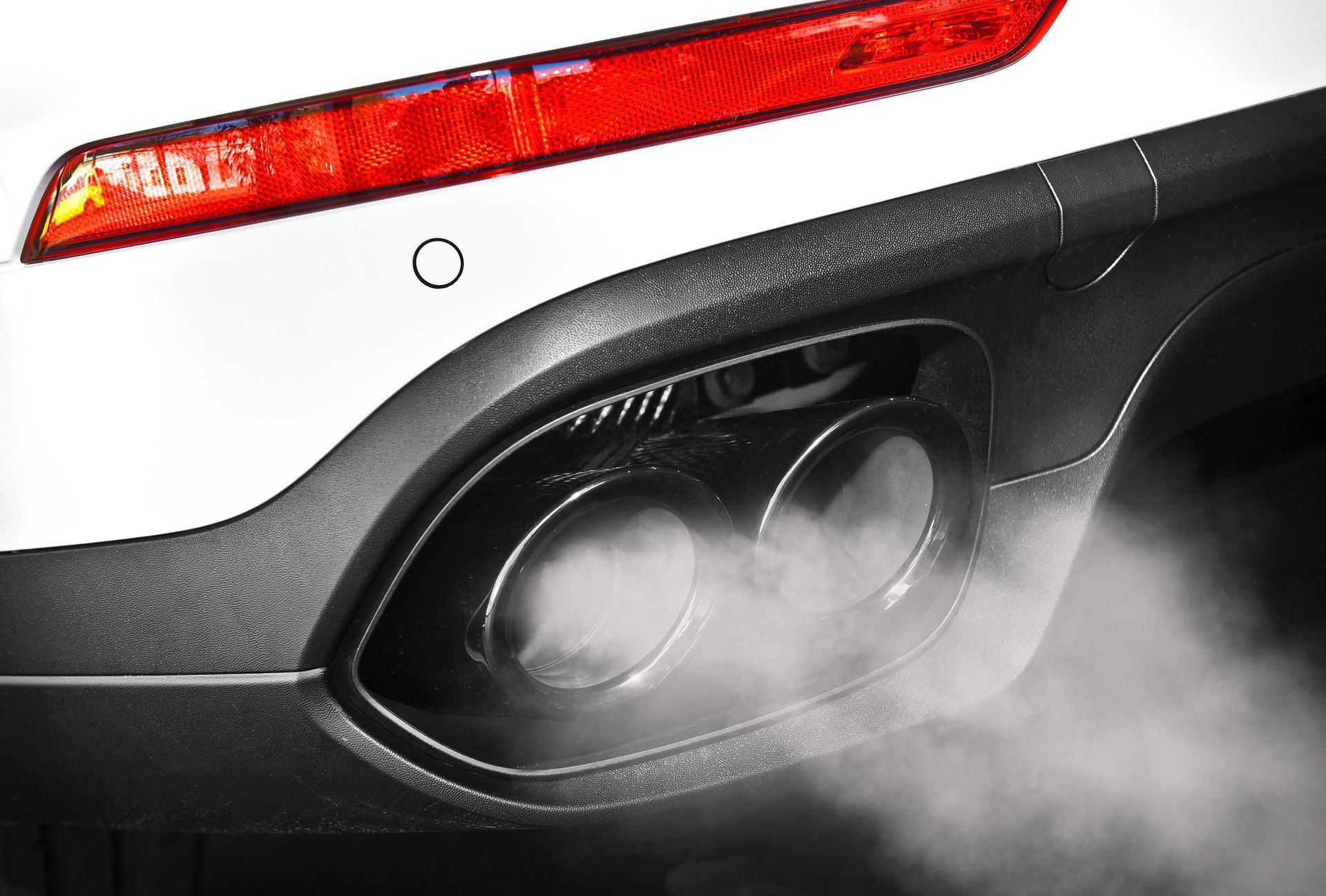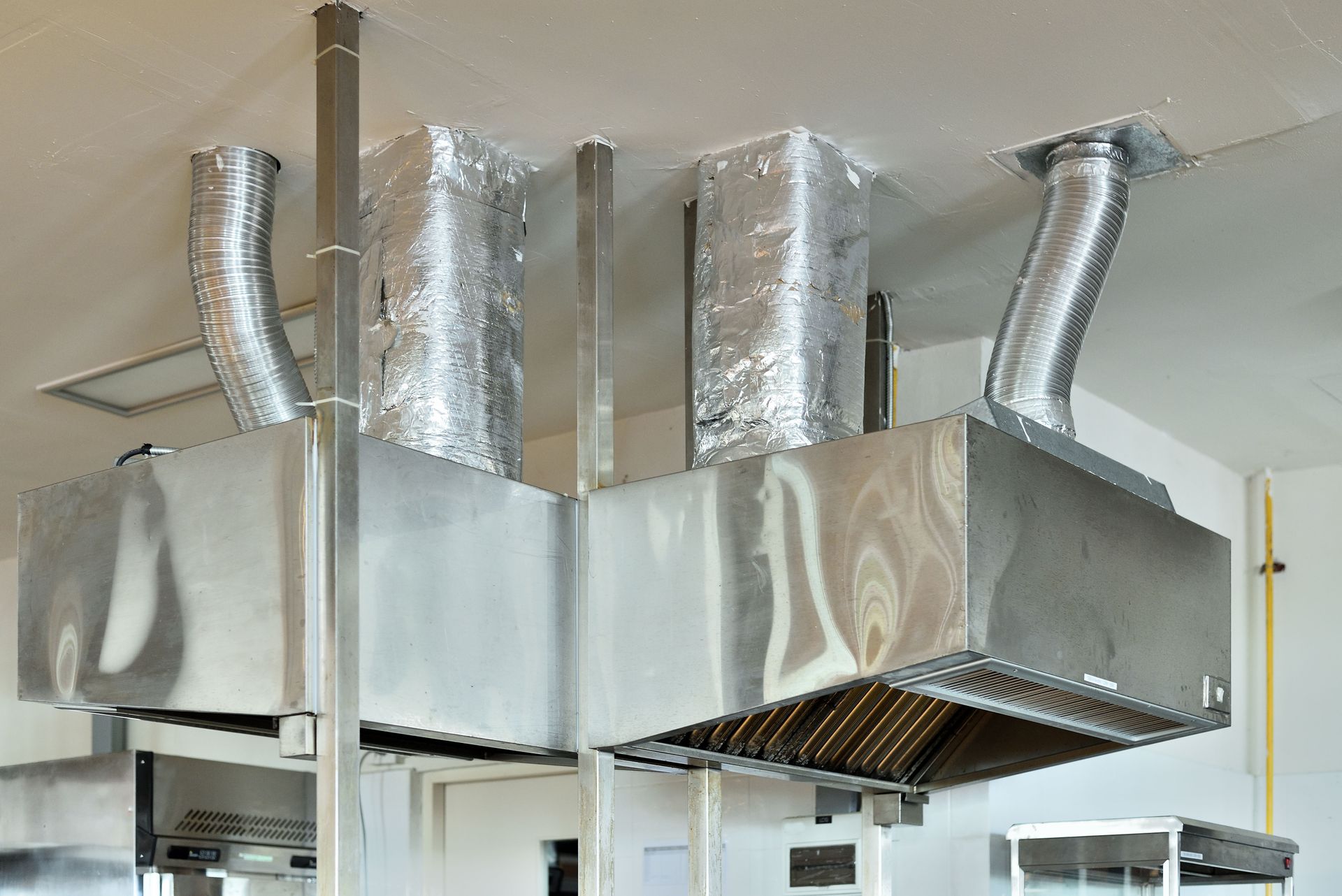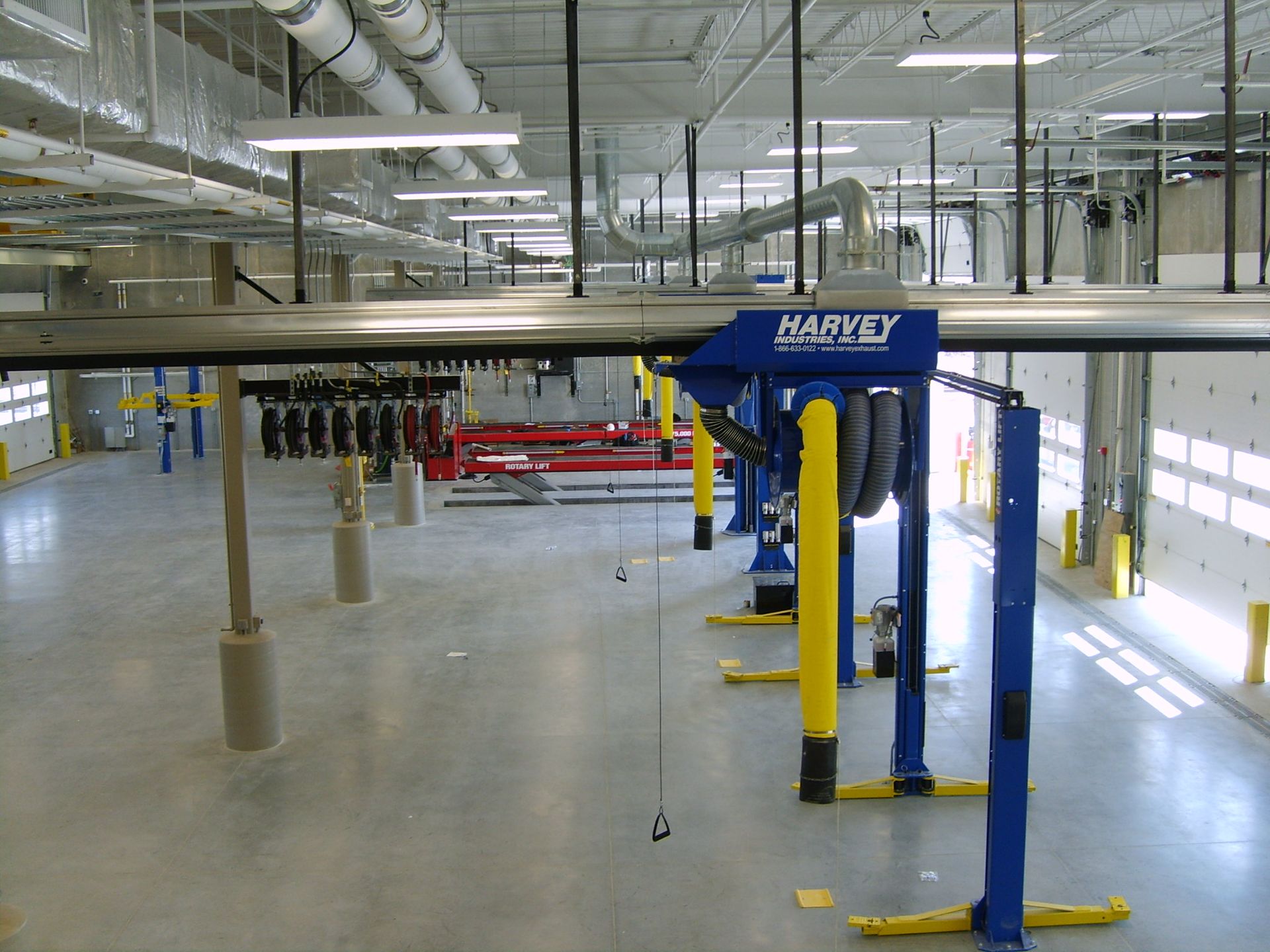September 26, 2025
Did you know that exhaust extraction systems are integral components in industrial settings, serving to remove harmful pollutants from the air? Their importance is increasingly recognized as workplaces strive to meet heightened safety and health standards. According to Intel Market Research, the global garage exhaust extraction system market was worth over $740 million in 2024. These systems not only improve air quality but also uphold compliance with environmental regulations, all while safeguarding employee health. By capturing hazardous emissions at the source, these systems play a pivotal role in minimizing workplace hazards. The broader implications encompass improving overall workplace environment, fostering productivity, and reducing health-related costs.
The Impact on Air Quality
Reduction of Harmful Emissions
Exhaust extraction systems are engineered to significantly reduce harmful emissions in workplaces. By capturing toxins directly at their source, they prevent the circulation of hazardous particles. This is pivotal in settings such as manufacturing plants and workshops, which often see high levels of risky substances. Effective emission control contributes to cleaner air and healthier environments for all. Organizations that leverage these systems demonstrate strong commitments to safety and environmental preservation.
Monitoring Airborne Contaminants
Monitoring the presence of airborne contaminants is facilitated by these systems through integrated sensors and detectors. The constant surveillance allows for real-time adjustments to purify air when pollutant levels rise beyond permissible limits. This proactive approach aids in averting potential health crises among employees. Advanced monitoring safeguards not only worker health but also contributes to sustainable business operations. Real-time monitoring systems are becoming a standard feature, aligning with the growing emphasis on safety in industrial affairs.
Environmental Benefits
Beyond workplace health, these systems offer notable environmental benefits. By efficiently managing emissions, these systems reduce the ecological footprint of industrial operations. This aligns with global initiatives targeting pollution control and climate change mitigation. Moreover, reduced contaminant emission ensures compliance with environmental sustainability targets. Ultimately, these systems support industries in achieving eco-friendly statuses and fulfilling corporate social responsibility objectives.
Compliance with Environmental Regulations
Adhering to environmental regulations mandates industries to implement effective exhaust extraction systems. These systems help businesses comply with legal standards that govern air pollutant levels. Non-compliance is not only hazardous but also risks severe fines and reputational damage. As industries strive to meet emissions targets set by international agreements, exhaust systems emerge as indispensable tools. Ensuring compliance through reliable systems promotes the brand image and mitigates legal risks.
Improving Indoor Air Quality
A significant benefit of using these systems is the improvement of indoor air quality. Cleaner air contributes to a healthier and more pleasant working environment. Enhanced air quality reduces the likelihood of respiratory ailments and associated absenteeism, thus supporting worker productivity. It also instills a sense of wellbeing and comfort in employees, leading to better workplace morale. Employers benefit from retained talent and reduced recruitment cycles, enhancing overall organizational performance.
Enhancing Worker Health and Safety
Protection Against Respiratory Issues
Exhaust extraction systems provide critical protection against various respiratory ailments for workers. Exposure to airborne pollutants can lead to chronic respiratory conditions and allergies if unchecked. These systems safeguard workers by filtering harmful emissions promptly. Regular usage thus becomes a preventative measure, curbing long-term health risks. Gradually, this proactive safety measure reduces the incidence of respiratory health-related claims, benefiting both workers and employers.
Prevention of Long-term Health Risks
Adopting these systems aligns with company strategies for long-term health risk prevention. By minimizing exposure to dangerous pollutants, these systems mitigate risks of developing diseases such as chronic obstructive pulmonary disease (COPD). A reduction in the prevalence of such conditions translates to fewer medical claims and lower healthcare costs. From a financial perspective, it underpins the organization's responsibility to safeguard employee health consistently. Healthy employees are more engaged, contributing to better productivity and morale in the workplace.
Reduction in Workplace Accidents
Beyond health, effective exhaust extraction systems contribute to reducing workplace accidents. By keeping work environments free from hazardous particulates, visibility is improved and slip hazards minimized. The systems also decrease the risk posed by flammable substances or chemical reactions. By addressing these underlying risks, businesses see fewer on-site accidents. This translates to better safety records and reduced rates of compensation claims, driving substantial financial savings.
Promoting Employee Well-being
Create workplaces conducive to mental and physical well-being. A clean air environment diminishes fatigue and headaches, contributing to overall mental health. The installation of these systems demonstrates an organization's commitment to employee welfare. Comprehensive wellbeing policies attract top talent, enhancing organizational reputation. Happy, healthy employees translate directly into streamlined operations and reduced turnover.
Employee Training and Education
Training employees is imperative to maximize the benefits of these extraction systems. When trained, employees can effectively identify potential air quality issues, using systems correctly. Awareness sessions can effectively communicate the health risks associated with poor air quality and the preventive role of extraction systems. Continual learning ensures adherence to best practices in air quality management. Such initiatives empower employees, fostering an informed, responsible workforce dedicated to safety.
Economic and Productivity Benefits
Reduction in Sick Leave
Efficient exhaust extraction systems are instrumental in reducing sick leave within organizations. By curbing the levels of harmful exposure, employees face fewer health-related absences. Consequently, improved health translates to sustained productivity with fewer interruptions to workflow. This reduced absenteeism directly affects the organization's bottom line through more consistent production schedules. A healthy workforce ensures consistent operational efficiency and energy levels throughout production phases.
Increased Employee Efficiency
Clean air provided by exhaust systems boosts employee efficiency by fostering a more favorable working environment. Optimal ambient conditions prevent droves of workforce exhaustion, upping productivity levels. Continuous, unobstructed work translates to lowered marginal production costs and timely order fulfillment. Employees free from pollutants work smarter and with increased focus, driving organizational success and allowing further investment in personnel. The resultant higher output per employee is evident across industry benchmarks.
Lower Healthcare Costs
Implementing these systems contributes significantly to lowering healthcare costs. Reduced respiratory ailments and decreased allergic reactions mean fewer healthcare expenses for both employers and employees. Employers experience fewer health insurance claims, directly impacting their financial sustainability. The savings garnered from reduced health-related absences and medical payouts are reinvested into broader employee wellness initiatives. Notably, employee affinity towards the organization grows, positively impacting retention rates.
Return on Investment in Safety Systems
While upfront expenditures for installing exhaust systems may be daunting, the long-term return on investment (ROI) is significant. The decreased costs of absenteeism, workplace hazards, and health care create substantial financial benefits. Additionally, businesses that prioritize safety witness increased reputational standing, often translating into larger market share capture. Therefore, these mechanisms do not just shield workers but also enhance a company's economic credentials. The advantages generated over time overshadow initial capital outlays.
Maintaining Industry Reputation
Industry reputation is preserved and enhanced when businesses implement comprehensive safety systems. Employing advanced exhaust extraction mechanisms signals the organization's leadership in workplace safety. Stakeholders gravitate towards firms prioritizing rigorous safety protocols, resulting in favorable financial outcomes. Reputation impacted positively also attracts skilled talent, extending competitive advantages. The commitment to safety and health standards shapes the organization’s legacy, bolstering long-term success.
Exhaust extraction systems are pivotal in ensuring workplace safety, health improvement, and realizing economic benefits. These systems act as frontline defenses against air pollutants, ensuring compliance with safety and environmental regulations. Beyond safety, they yield significant economic rewards—reducing absenteeism, cutting healthcare costs, and boosting productivity. In an era prioritizing safety, sustainability, and economic optimization, exhaust extraction systems remain indispensable assets for modern industries. Call us today for help with your exhaust extraction needs.






